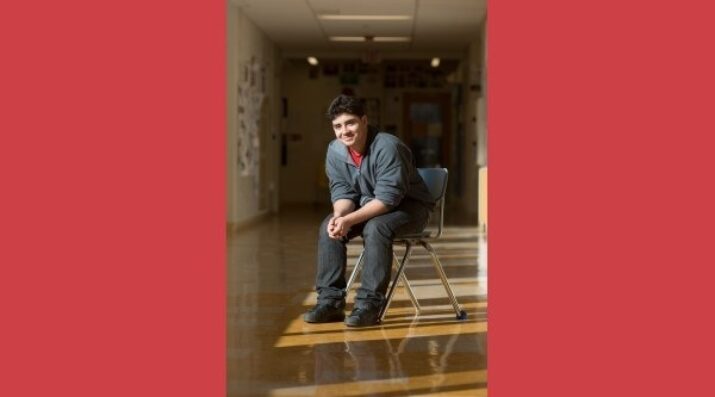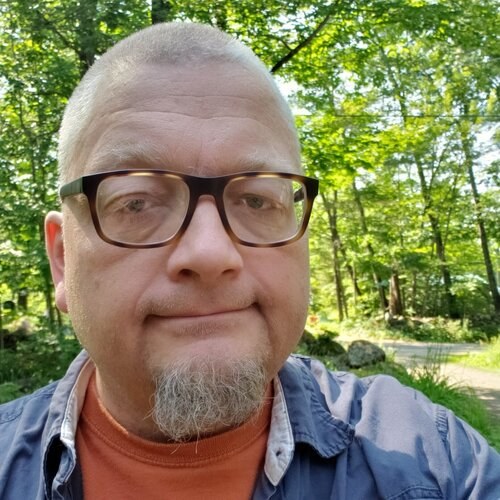Why Schools Need to Change
The Truth about Education Falsehoods: Why Discerning the Truth about Our Assumptions Is Integral to Ethical Education
Topics

Today’s learners face an uncertain present and a rapidly changing future that demand far different skills and knowledge than were needed in the 20th century. We also know so much more about enabling deep, powerful learning than we ever did before. Our collective future depends on how well young people prepare for the challenges and opportunities of 21st-century life.
What we believe about learning and kids will change how we behave with kids and learning. It's the foundation of ethics in education.
It was a giddy moment one month ago (July ’21), when Carisa Corrow and I officially released our book 126 Falsehoods We Believe About Education. We knew the book—the content—was great (yeah, I can say that), and Carisa’s design was amazing. But to hold the physical artifact in our hands—in real life, vibrant “analogue” color and a cover with soft-touch, seductive, aqueous coating—was beyond charming. Talking with a friend about it later in the week, though, something came up.
“Congratulations on this. Can’t wait to read. But …” here it comes “... how does this fit in with all the other stuff you’ve been writing about? Ecosystems? Ethical Assessment? All of that?”
Good question! The book began as two articles here on the blog, Falsehoods We Believe about Grading and Reporting and Falsehoods We Believe about Assessment. It was a departure—in format and maybe tone—from previous pieces, but still of a piece with the direction that I (and Carisa and Educating for Good) were already heading. So, how does it fit in with everything else? Let me lay this out for you. I’m about to get philosophical.
Only by going through a process of discernment, inquiry, and introspection can you sort out what you really believe.
Ethical Assessment is an attempt to change the behaviors of educators, students, communities, and systems so that our behaviors regarding assessment are for good. What does it mean to be good? That’s a question we humans have been wrestling with for longer than we’ve been able to write. I have some definite opinions about this, but they don’t exist in isolation.
Ethics—the consideration of what it means to do good—is a branch of philosophy, but it is based in two other branches of philosophy (at least). Those two are ontology and epistemology.
Ontology is the consideration of existence. What is? What is it? What does it mean to be? What are the qualities of being? Epistemology is the consideration of knowing. What do we know? How do we know what we know? How do we know what we know we know? How do we know what someone else knows? What does it mean when we say someone knows something? In what conditions is “knowing” possible?
Ontology and epistemology may both seem kind of navel gazy, but even if you haven’t spent time thinking about these kinds of things—you do have beliefs around them. You may not have considered those beliefs in the context of education, but they can be discerned from your behaviors. Let’s play a bit.
Educators often ask ourselves, “What do we believe about kids?” What are kids? It’s an ontological question. Are they unfinished adults? Are they dependent offspring? Are they innocents? Are they extensions of ourselves? Are they autonomous humans? (It’s interesting how many requirements, restrictions, and punishments we apply to kids that we don’t apply to non-juvenile humans.)
Questions of ontology in education are interesting. What is a teacher? An expert guide? A blacksmith? A lecturer? A coach? A physician? An artist? A conductor or bandleader or improviser or choreographer or friend or parent? What are schools? Factories producing citizens? Workers? Or are they gardens? Or families? Or societies? Or organisms or hives? Indoctrination centers? Prisons? (We do a lot of prison-y stuff in school.) All of these definitions of what a teacher is may be true and many of them are metaphors. Metaphors are tools for ontological understanding. We frame what it is by what it isn’t. (“It’s a jungle out there!” or “It’s raining cats and dogs!”) See Assessment, Metaphor, and Hyperobjects: Rethinking #RethinkAssessment.
Questions about epistemology will probably seem closer to home for teachers. We are constantly wrestling with the question of “does this kid know this thing?” What does it mean for them to know it? If they don’t answer a question, do they know it? Do they not know it? If they can answer it now, but not in an hour, do they know it? If they accumulate enough fungible-units-of-learning (FULs) over the course of a semester, what do they know?
Is it ever possible to truly say that another person does not know something? Rather than saying they haven’t demonstrated it? It’s not a trivial distinction, but what are the implications? Does a kid only know something if they get it right on a Saturday morning exam being watched by proctors? Do they only know enough if they spend thirteen years striving to get high enough verbal and math scores on the SAT?
These are important questions because what you believe about learning and kids ontologically and epistemologically will change how you behave with kids and learning. Your ontology and your epistemology become the foundation for your ethics. The reason it’s important to consider what we believe about what kids are and how they learn and how we know is because—despite the fact that some people inexplicably find the words ontology and epistemology tedious—you already have beliefs about all of these things and you are acting on them. When it comes to educating kids, you either have your philosophy, or your philosophy has you. The unexamined pedagogy is not worth teaching, so shall we at least partially examine it?
Only by going through a process of discernment, inquiry, and introspection can you sort out what you really believe, bringing your assumptions (which are unconsidered beliefs) to the surface and examining them. Trying to discern what is and what ought to be is why I asked, “Is education a hyperobject?” It’s why I drew pictures exploring the idea of where the story is. It’s why Cheryl Lupenui and I have engaged in a conversation about education as an ecosystem for the past two years. This is why Carisa Corrow and I wrote 126 Falsehoods We Believe About Education. It’s a provocative (and very amusing!) attempt to look at unconsidered beliefs about what education is and how kids learn, and how these shape our behaviors. How can we address these falsehoods and reshape a foundation that supports Ethical Assessment and Education?
Photo at top by Allison Shelley for EDUimages.




